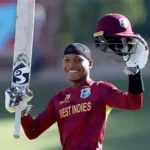This country’s first privately-run neonatal intensive care unit (NICU) aims to support the public system. Housed at Sanjivani Women’s Hospital in St Augustine, the Level 2 NICU provides care to “short-stay” babies for four and five days.
Supervising neonatologist Dr Marlon Timmothy said the facility will supplement rather than compete with or replace NICUs in the public healthcare system.
As chairman of the National Neonatal Programme in T&T, Dr Timmothy has responsibility for the NICUs in the country. He said there are five neonatal units in the public healthcare setting but given the number of admissions to these units annually, the additional two spaces at Sanjivani will ease some of the burden.
“Between them we have about 30 ventilator beds. However, we have about 1,500 neonatal admissions per year in the country, so often times you find that those ventilator beds run out very quickly or we have to be juggling some kids off of vents, some kids on a vent etcetera,” he said.
“When you get a call from a private hospital where a delivery just happened and there’s nowhere to put that baby, sometimes you have to really juggle in between or make up something to try and help and we no longer have to do that. We can actually add or just bring that baby here and that baby can receive care. So, it’s actually really important to add two ventilator beds.”
The highest level of care, Level 3 NICUs, are located at the Port-of-Spain General Hospital, Mt Hope Women’s Hospital, and San Fernando General Hospital. There are Level 2 NICUs at the Sangre Grande Hospital and in Tobago.
Healthcare professionals believe having the additional facility will benefit practitioners and, most importantly, the patients.
Secretary of the Paediatric Society and consultant in the neonatal unit at Mt Hope Dr Mariama Alleyne said often when a newborn needs to be transferred to a public NICU after being born at a private facility, the mother is not admitted with them.
“Depending on mommy’s condition, mommy may not be able to see her baby for days on end. Now this is going to increase mommy’s stress, this is going to increase her anxiety and we know if mommy is not well, the whole family is affected,” she said.
“When mommy is anxious and stressed, she doesn’t produce breast milk well so all of that not only affects her and the family but it ultimately affects the baby. It affects the bonding. This time that is supposed to be your exciting time, you’re expecting this bundle of joy, and now its the most stressful time in your life. Having your baby admitted to the NICU, I always tell my parents, is the most stressful experience, so imagine having your baby admitted to a NICU in an institution you are very far removed from.”
Obstetrician and gynaecologist Dr Mary Singh-Bhola said a NICU in the private sector allows doctors to continue on the birth journey with their patients instead of having to hand them over to the public system.
Those are the reasons why Joanna James wished it was an option available when she gave birth four years ago and her twins were admitted to a NICU in the public sector.
“When I was 30 weeks (pregnant) . . . .my doctor was telling me that I’d have to go to the public sector to be able to secure a bed because if you’re not in the clinics you can’t get a bed for the kids and I was having some difficulty. That decision to move from my private doctor to the public sector was so scary,” she said.
James said even after her son and daughter were born with a combined weight of five pounds, it was difficult to get space for them in the NICU, delaying their admission by two days. She said it was two weeks before she could hold her son and a month before she could do the same for her daughter.
“We could only go there and visit and it was under strict protocols. You couldn’t go through the glass and hold them. So something like this . . . I wish they had it four years ago. I think it’s a great service to mothers because that time away from your child, it’s very difficult,” she said.
Clinical director at Sanjivani, Dr Prakashban Persad. it was because of such experiences that they decided to open the unit.
“Very often when we have to transfer patients to the public sector, it’s not only almost traumatic for doctor and patient and inconvenient but we often feel we lose control of our patients. They go to (the) public sector and they calling us five times for the day (saying) they’re not happy with what’s happening and can they can come back,” he said.
“We say you can come back and look after you, we’d look after the mom, but what happens if your baby is delivered? And that’s why you’re sent to the public sector. Because of that, we felt if we have our own NICU, then we don’t have to put our patients through that trauma.”










